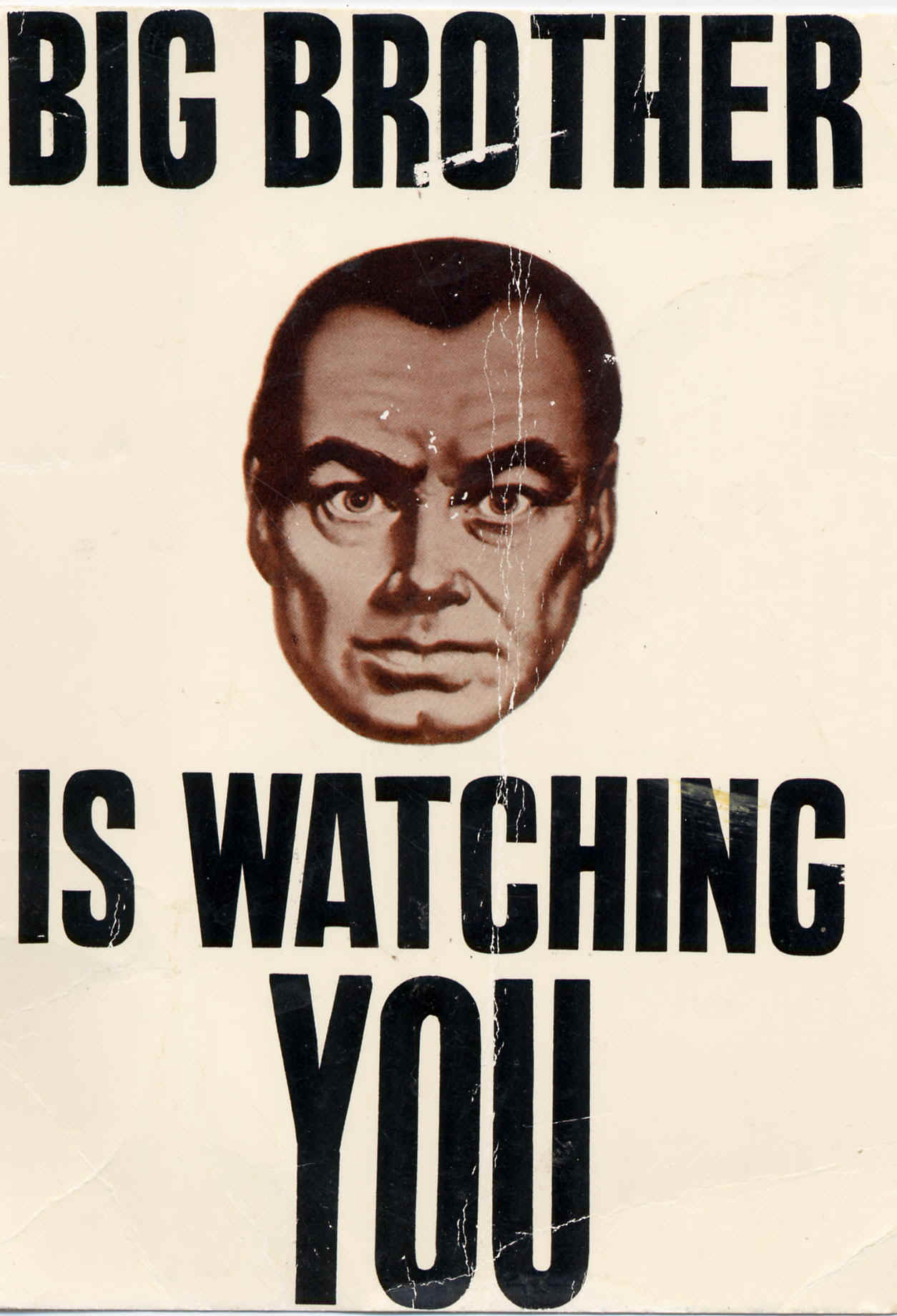"It was a cold day in April, and the clocks were striking thirteen."
This line is from the novel Nineteen Eighty-Four, which was published in the year 1949 by the Author George Orwell who lived from June 25, 1903 to January 21, 1950. This author is also known for other works, including Animal Farm and many others.
Nineteen Eighty-Four is a novel by George Orwell published in 1949. It is a dystopian and satirical novel set in Oceania, where society is tyrannized by the Party and its totalitarian ideology. The Oceanian province of Airstrip One is a world of perpetual war, ominpresent government surveillance, and public mind control of a privilegded Inner Part elite that persecutes all indivilualism and independent thinking as thought crimes. Their tyranny is headed by Big Brother, the quasi-divine Party leader who enjoys an intense cult of personality, but who may not even exist. Big brother and the Party justify their rule in the name of a supposed greater good. The protagonist of the novel, Winston Smith, is a member of the Outer Party who works for the Ministry of Truth, which is responsible for propaganda and historical revisionism. His job is to rewrite past newspapers acticles so that the historical record always supports the current party line. Smith is a diligent and skillful worker, but he secretl hates the Party and dreams of rebellion against Big Brother.
One of the reviews says
From Winston Smith's point of view, many things that scare us are normal. For example, the omnipresence of the "Big Brother", always watching you, and the "Thought Police", that punishes treacherous thoughts against the Party. The reader feels the inevitability of doom that pervades the book many times, in phrases like "Thoughtcrime was not a thing that could be concealed forever. You might dodge successfully for a while, even for years, but sooner or later they were bound to get you.
From Winston Smith's point of view, many things that scare us are normal. For example, the omnipresence of the "Big Brother", always watching you, and the "Thought Police", that punishes treacherous thoughts against the Party. The reader feels the inevitability of doom that pervades the book many times, in phrases like "Thoughtcrime was not a thing that could be concealed forever. You might dodge successfully for a while, even for years, but sooner or later they were bound to get you.
Orwell made in this book many observations that are no more merely fiction, but already things that manage to reduce our freedom. This is a book that only gets better with the passing of time, as you read in it more and more implications. One of Orwells main reasons for writting this "negative utopia" might have been to warn his readers against communism, but many years after his death and the fall of communism, we can also interpret it as a caution against the excessive power of mass media, or the immoderate power of any government.
"...you must go on, I cant go on, Ill go on."
This line is from the novel The Unnamable, which was published in the year 1953 Samuel Beckett who lived from April 13, 1906 to December 22, 1989. This author is also for other works including Dream of fair to Midding Women and Mercier and Camier.

The Unnamable is a 1953 novel by Samuel Beckett. Is it the third and final entry in Beckettes "Trilogy" of novels, which begins with Molloy followed by Malone Dies. It was originally publishd in French as L'Innommable and later adaped by the author into English. Grove Press published the English edition on 1958.
The Unnamable consists entirely of a disjointed monologue from the persepective of an unnamed (presumably unnamable) and immobile protagonist. There is no concrete plot or setting - and whether the other characters actually exist or whether they are facets of the narrator himself is debatable. The protagonist also claims authorship of the main characters in the two previous novels of the Trilogy and Becketts earlier novels Murphy, Mercier and Camier, and Watt. The novel is a mix of recollections and existential musing of the part of its narrator, many of which pertian specifically to the possibility that the narrator constructed by the language he speaks. Other characters serve as the passive recipient of the dialogue and in many places the dialogue genesis. The novel builds in its despairing tone until the ending, which consists mainly of very long run-on sentences. It closes with the phrase "You must go on, I cant go on, Ill go on," which was later used as the title of an anthology of Beckett works.
One of the critic reviews says;
After the second read it isn't so crazy, really! It's a poem, more than prose, a prayer even, and is best (as the wife tells me), read that way, in small doses, in order to get the beauty of the language.
To me it could be one of the lost books of the Bible, something the Pharasies and/or the popes thought too crazy to include, maybe the Lost Book of Job or Jeremiah, maybe Cain. The character, the Unnamable, armless and legless voice that cries out throughout the one hundred odd pages could easily be the voice of all humanity, all the suffering, oppressed who never do have a voice, who's existence is nothing more than a cry in the dark, the ones who History crushes beneath its black boots. If in Ulysses Joyce wrote about all the thoughts that fill the mind during an entire day, Beckett writes all the desperate, deathbed thoughts that wrack the brain in an instant.



Lots of good info here...I wonder if either of these books appeal to you or are something you would want to read...I'm not sure I'd be up for either of them! :)
ReplyDelete